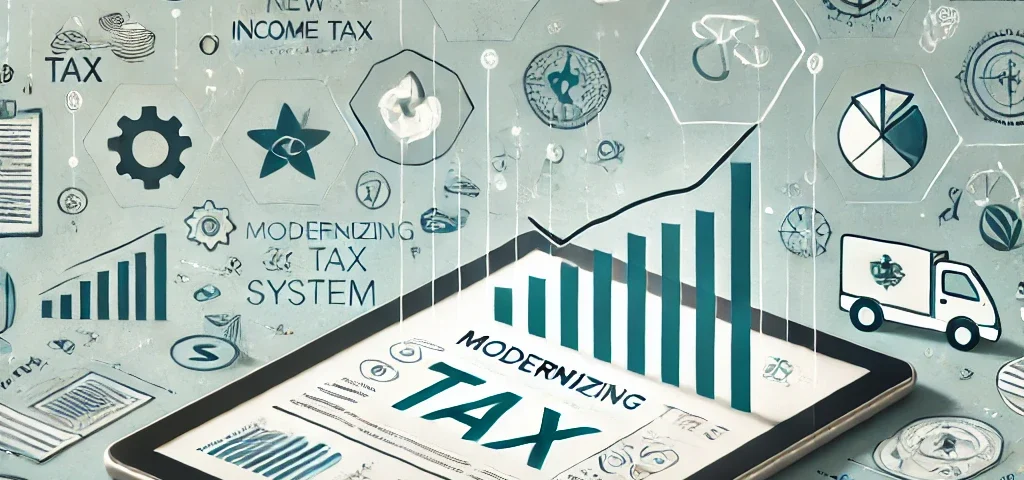Key Highlights of the New Income Tax Bill 2025

Dhantax
May 8, 2014
Startup India Scheme in West Bengal – Financial Incentives
February 15, 2025Key Highlights of the New Income Tax Bill 2025
-
Simplification of Tax Structures The new Income Tax Bill brings a simplified and transparent tax structure that seeks to reduce the complexity that taxpayers often face. By consolidating various exemptions, deductions, and rebates, the bill presents a streamlined approach that is easy to navigate for both individuals and businesses. The focus is on minimizing paperwork and simplifying the overall tax filing process.
-
Introduction of a Progressive Tax Regime The bill introduces a progressive tax regime with distinct tax slabs aimed at ensuring that higher-income individuals contribute fairly to the economy. Lower-income earners will benefit from reduced tax burdens, while those with higher incomes will face a more equitable tax rate.
-
Digitalization of Tax Administration The new bill places a strong emphasis on technology and digitalization. With the increasing reliance on digital transactions and e-commerce, the bill mandates online filing of tax returns and offers an automated system for income tax assessments. This move is expected to curb corruption, reduce human intervention, and increase efficiency in the tax collection system.
-
Corporate Tax Reforms Corporate tax rates have been revised in the 2025 bill to encourage investment and economic growth. The new regime offers various incentives for businesses that invest in research and development, innovation, and sustainable practices. Additionally, businesses will find it easier to comply with tax rules, as the bill introduces a simpler tax structure for corporate entities, particularly for MSMEs.
-
Tax Relief for the Middle Class A major reform under the New Income Tax Bill 2025 is the introduction of greater tax relief for the middle class. The government has listened to the concerns of the salaried and middle-income groups and has introduced exemptions and deductions that can significantly reduce the tax burden. This is aimed at boosting consumption and economic participation.
-
Incentives for Green and Sustainable Practices Environmental sustainability is at the core of the new tax policy. The bill introduces tax breaks for companies and individuals who adopt green energy practices, such as investing in renewable energy, electric vehicles, and sustainable agriculture. These incentives aim to promote a more sustainable future while encouraging green technology development in India.
-
New Taxation Rules for Digital and E-Commerce Businesses As digital platforms continue to grow, the 2025 tax bill includes specific provisions targeting e-commerce, fintech, and other digital businesses. The bill clarifies the tax obligations for these sectors, ensuring that both national and international players are taxed fairly on their revenues generated in India. This is a crucial step in making the digital economy more inclusive and fair.
What This Means for Taxpayers
For individual taxpayers, the bill promises a hassle-free filing experience, with a focus on ease of access and transparency. The reduction in tax complexity will allow for quicker, simpler filings, with fewer chances for errors and disputes. Additionally, the introduction of more taxpayer-friendly policies such as deductions for medical expenses, home loans, and education will provide relief to millions of families across India.
For businesses, particularly small and medium-sized enterprises (SMEs), the new bill offers a simplified tax structure and a more predictable tax environment. The aim is to remove the barriers that often prevent SMEs from flourishing and encourage entrepreneurship.
What’s Next?
The implementation of the New Income Tax Bill 2025 will take place in phases. The government is expected to introduce a comprehensive digital platform to support taxpayers in navigating the changes. Additionally, taxpayer education and awareness campaigns will be launched to ensure that the public understands how the new system works and how to take full advantage of the benefits.
Conclusion
The New Income Tax Bill 2025 is a bold step towards modernizing India’s tax system. With its focus on simplification, transparency, and digitalization, the bill is set to make India’s tax system more efficient and fair. It will not only make compliance easier for the public but also encourage investment and business growth. This reform aligns with the government’s vision to create a robust, future-ready economy, fostering development while ensuring that tax policies are equitable for all.







